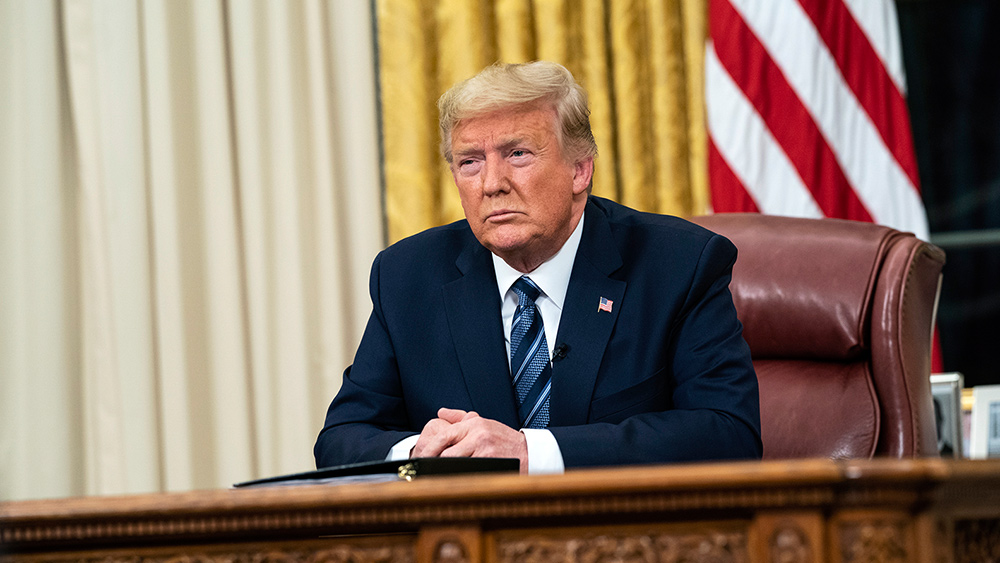Report: Top U.K. universities now kowtowing to commie China
07/14/2020 / By Michael Alexander

Several British universities are now under fire for complying with Chinese internet censors in order to offer distance-learning courses to international students.
According to a report by national British daily broadsheet The Telegraph, the courses are offered through software developed by JISC, a digital learning non-profit organization, in partnership with Chinese e-commerce and tech giant Alibaba. The software would allow Chinese students who would normally have to study in the U.K to continue their studies remotely.
The software sets up a connection between the institution and the student via the Chinese internet company Alibaba Cloud. The software, however, has to comply with notoriously strict Chinese internet firewalls, which means that students will only have access to course materials that have been previously approved by Beijing.
The pilot program involves King’s College London, Queen Mary University of London, University of York and Southampton University – all of which are members of the prestigious Russell Group of research institutions.
According to reports, the program – once it is deemed successful – could be rolled out to universities across the country.
Brushing off any concerns regarding censorship, a Universities U.K. spokesperson maintains that academic freedom remains of “utmost importance” and that the organization was not aware of any alteration to course content to comply with local laws. (Related: Academic hypocrisy: Stanford, liberal universities accepted funds from commie Beijing.)
“This scheme is intended to ensure that Chinese students, learning remotely during the pandemic, can access course materials and are able to continue their studies,” the spokesperson said.
Matthew Henderson, a former diplomat and the Asia director at the Henry Jackson Society, remained unconvinced, however, noting that what the universities did is tantamount to censorship, as it limits the texts that students get to read.
According to Anthony Glees, a professor at the University of Buckingham, the decision to limit the kind of materials that the students could access undermined what could be the main reason that draws overseas students – such as those from China – to the U.K., which is academic freedom.
“If you simply make UK universities an extension of what students might learn in the People’s Republic of China, what would be the academic and intellectual point in coming to study in the U.K.?” Glees said.
A similar system has already been deployed by several Australian universities.
Chinese students now almost a quarter of the U.K.’s international student population
The controversy surrounding the universities’ distance-learning program came after the release of a report showing that the U.K. has overtaken the U.S. as the preferred overseas study destination for Chinese students.
The survey, published by New Oriental Education & Technology Group and conducted by market research firm Kantar Millward Brown, showed that the U.K. was preferred by 42 percent of the survey’s 6,673 respondents, compared to the U.S. which was preferred by 37 percent of the respondents.
According to the survey, the shift in students’ preference can be attributed to several factors, such as the current tense status of Sino-U.S. relations, the U.K.’s reopening of its Post Study Work Visa, and quicker graduation requirements.
As per official data, Chinese students now account for almost a quarter of the U.K.’s total number of international students – about 120,385.
Several personalities have expressed concern over this, noting the effects of growing Chinese influence on British university campuses.
In a column published on the website Conservative Home, Conservative lawmaker, Tom Tugendhat, noted that British society – a society he describes as being built upon “an open system of education that encourages freedom of thought” – is currently under threat from China.
In the article, Tugendhat – the leader of the Parliamentary Foreign Affairs Committee – warned that the U.K. needs “a global China strategy” if it is to confront Beijing, which he describes as “the biggest challenge to the liberal world since the end of the Cold War.”
Tugendhat’s statements came after several Chinese international students at the University of Warwick blocked a student union motion to express support for Hong Kong protesters.
Following reports about the U.K.’s lead over the U.S. as the preferred foreign destination for Chinese students, China’s ambassador to Britain Liu Xiaoming told students to leverage their strength, practice patriotism and “serve your motherland” – further exacerbating concerns over Chinese presence in the U.K.
Sources include:
Tagged Under: Beijing, campus, case, China, communism, Communist Party, corruption, court, cyber war, education, insanity, intellectual property, left cult, Leftists, legal, liberals, lies, lunatics, national security, technology, treason, Tyranny, universities, university research
RECENT NEWS & ARTICLES
COPYRIGHT © 2017 CRYBULLIES NEWS



















